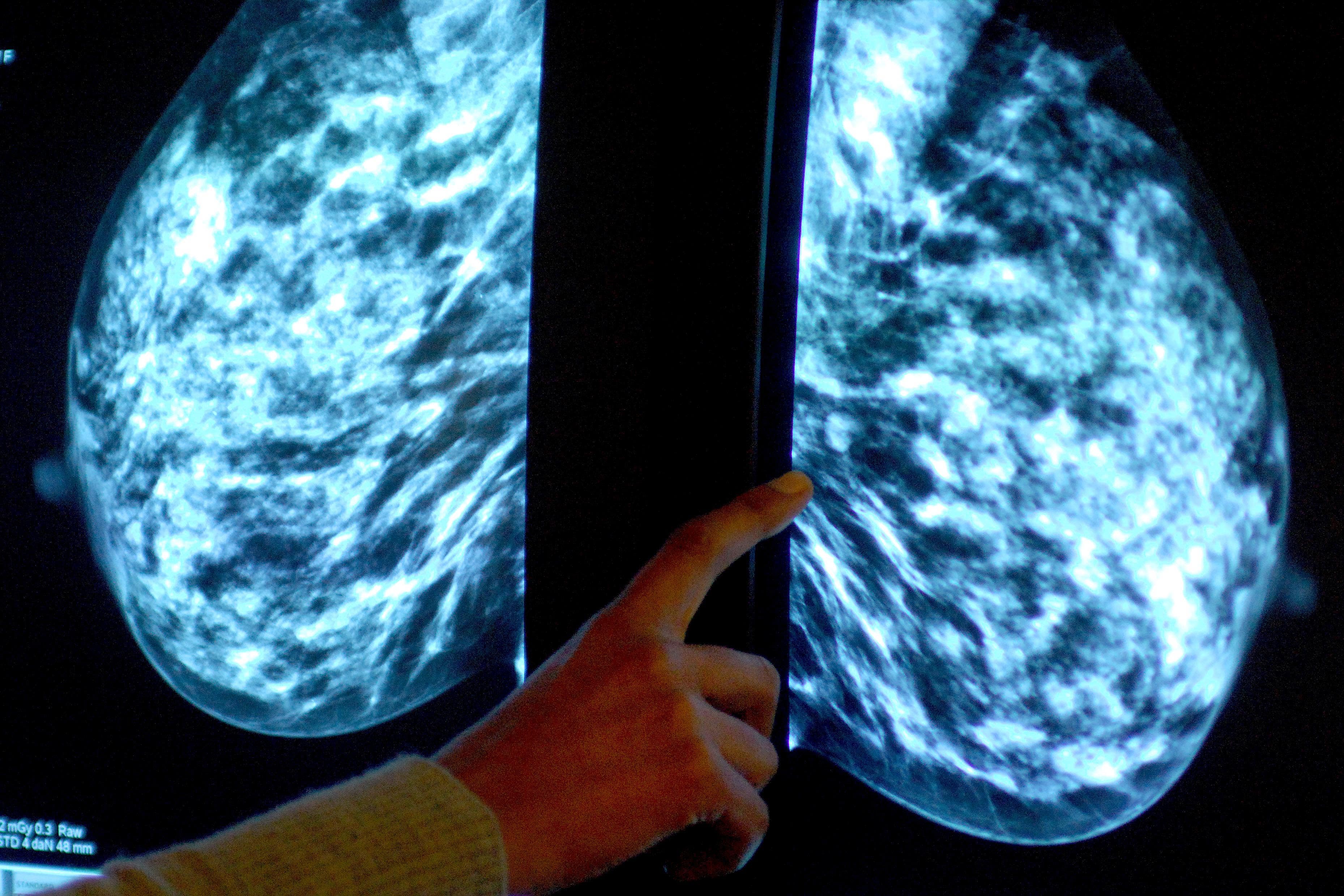‘Personalised’ breast cancer screening could benefit women – researchers
Academics have come up with a new risk assessment tool which could lead to changes in the way women are screened.

Your support helps us to tell the story
From reproductive rights to climate change to Big Tech, The Independent is on the ground when the story is developing. Whether it's investigating the financials of Elon Musk's pro-Trump PAC or producing our latest documentary, 'The A Word', which shines a light on the American women fighting for reproductive rights, we know how important it is to parse out the facts from the messaging.
At such a critical moment in US history, we need reporters on the ground. Your donation allows us to keep sending journalists to speak to both sides of the story.
The Independent is trusted by Americans across the entire political spectrum. And unlike many other quality news outlets, we choose not to lock Americans out of our reporting and analysis with paywalls. We believe quality journalism should be available to everyone, paid for by those who can afford it.
Your support makes all the difference.Women could one day be offered personalised breast cancer screening thanks to a new prediction tool created by academics.
A woman’s risk of developing the disease can vary quite significantly based on a number of factors such as her age, her family history and alcohol consumption, researchers said.
But at the moment women are offered standardised screening to pick up any cancer cases.
However, a research team from Spain and Norway said that it may be safe to offer some women screening tests at longer intervals – while other women may need closer monitoring.
The NHS breast screening programme sees women invited for screening every three years between the ages of 50 and 71.
A new study, presented to the European Breast Cancer Conference in Barcelona, concluded that individual breast cancer risk that could be used to create personalised breast screening.
Dr Javier Louro, from the Hospital del Mar Medical Research Institute in Barcelona, said: “We know about many of the factors that influence breast cancer risk.
“For example, getting older, having a family history of breast cancer and some types of benign breast disease can all increase the risk.
“We can’t do much about those risk factors, but we can use this information to predict the risk of breast cancer.”
Researchers examined data from the Cancer Registry of Norway which contains information on 50,000 women who had breast screening between 2007 and 2020.
Experts looked at whether or not women had 10 known breast cancer risk factors including age, weight, alcohol consumption and family history.
They compared these risk factors among women with and without breast cancer.
The team found that the risk of developing breast cancer over a period of four years ranged from as low as 0.22% for some people up to 7.43% for others.
They also said that some factors were more important than previously thought – for example, the protective effect of how many hours of exercise a woman takes per week.
Dr Louro said: “Our model might be considered a key for designing personalised screening aimed at reducing the harms and increasing the benefits of mammographic screening.
“For example, someone with low risk, might be offered screening with standard mammography every three or four years instead of two years; someone with medium risk might be offered screening with advanced 3D mammography every two years while those at a high risk might be offered a new screening test with mammography or MRI every year.”
The authors cautioned that the finding is only based on screening in Norway and the risk prediction tool now needs further work to understand the true benefit of personalised screening.
Commenting in the study, Dr Laura Biganzoli is co-chair of the European Breast Cancer Conference, said: “We know that breast screening programmes are beneficial, but we also know that some people will experience potential harms caused by false positives or overdiagnosis.
“A screening programme that is tailored to each person’s risk could reduce these harms and increase the benefits.
“This research shows how we might be able to identify people with a high risk of breast cancer, but equally how we could identify those with a low risk. So it’s an important step toward personalised screening.”